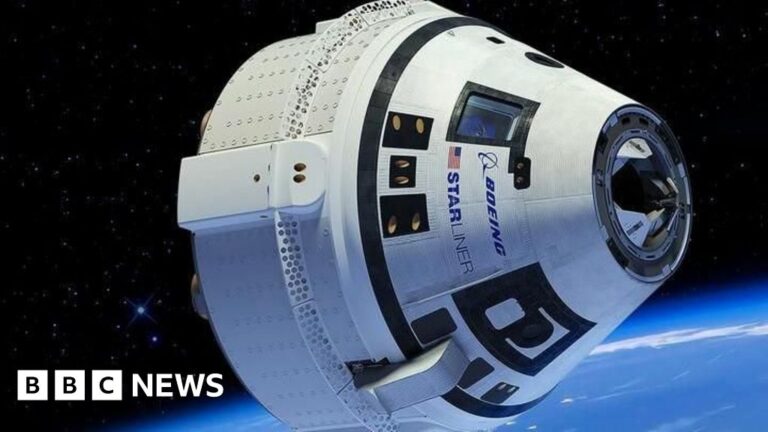In a dramatic flip of occasions that underscores the intricate ballet of house exploration, Boeing Co’s eagerly anticipated maiden crewed flight encountered an surprising hiccup, postponed mere hours earlier than its scheduled takeoff, based on NASA officers.
Veteran astronauts Butch Wilmore and Suni Williams have been poised and prepared, already positioned inside the spacecraft when a essential determination was made to halt the launch. The trigger? A possible concern with the oxygen security valve – an important element within the life assist system of any manned house mission. This determination displays the rigorous security protocols synonymous with house journey, the place the margin for error is just about non-existent.
Destined for the Worldwide House Station (ISS), and originating from the historic launch pads of Cape Canaveral, Florida, this mission represents a major milestone in Boeing’s foray into house exploration. In a show of dedication to transparency and engagement, Boeing took to social media, hinting at a possible new launch window as close to as this Friday.
The journey to this second has been something however simple for Boeing. A sequence of setbacks in spacecraft improvement delayed this mission for a number of years, underscoring the complexities and unpredictable nature of designing automobiles able to withstanding the cruel surroundings of house.
“Cease launch makes an attempt tonight,” a message from NASA Administrator Invoice Nelson mirrored the unwavering dedication to security that pervades each degree of NASA’s operations. He continued, asserting, “@NASA’s prime precedence is security. We’ll go after we’re prepared”—a sentiment that captures the essence of house exploration’s cautious persistence.
In its formidable quest, Boeing goals to hitch the ranks of personal corporations like Elon Musk’s SpaceX, which revolutionized the dynamics of crew transportation to and from the Worldwide House Station. Musk’s historic achievement with the Crew Dragon spacecraft in 2020 marked the tip of practically a decade of reliance on Russian house capabilities for manned U.S. spaceflights.
The saga of Boeing’s Starliner spacecraft encapsulates the trials and tribulations inherent to the sector of aerospace improvement. Initially slated for an unmanned take a look at flight in 2015, challenges postponed its debut till 2019. But, an extreme gasoline consumption concern thwarted its mission to dock with the ISS. A subsequent try in August 2021 confronted delays, pushing the launch to Might 2022. Regardless of these challenges, Starliner’s resilience was on full show when it efficiently accomplished its mission, albeit with famous issues concerning some thrusters and the spacecraft’s cooling system.
With over a decade of expertise writing inside the aerospace trade, the complexity and sheer audacity of human house exploration regularly encourage me. It is a narrative that encompasses greater than the technical achievements; it is concerning the indomitable spirit of exploration, the meticulous consideration to security, and the relentless pursuit of the unknown. Boeing’s journey exemplifies these themes—a testomony to human ingenuity and resilience dealing with the huge frontier of house.
